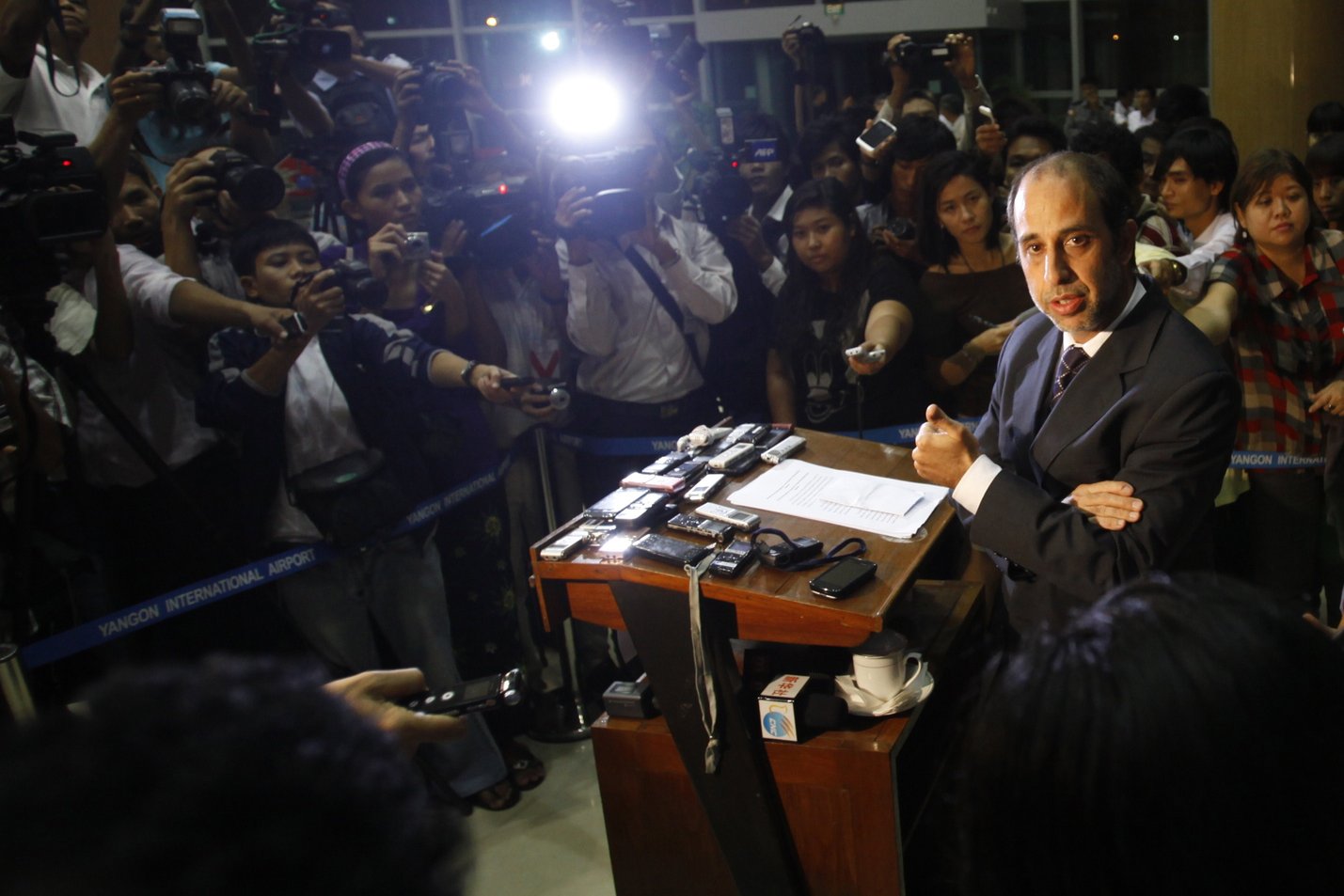For most of 2009, the Central Bank of Egypt’s rate policy was predictable, cutting interest rates to reign in high inflation.
This year has been a different story. The CBE has kept rates steady since September, with lending and deposit rates for June remaining unchanged at 9.75 percent and 8.25 percent, respectively.
Although annual headline inflation has fluctuated, it declined to 10.6 percent in May, down from 11.4 percent the previous month and from its record high of 23.6 percent in August 2008.
The bank’s decision to hold interest rates steady can be attributed to two main reasons, said Hany Genena, chief economist at investment bank Pharos Holding, “inflation has been down the past few months due to the softening of food prices, and the financial turmoil in Europe has negatively impacted foreign direct investment [coming] into Egypt.”
In a written statement, Reham ElDesoki, senior economist at Cairo-based investment bank Beltone Financial, concurred, saying that last year’s “unfavorable shock to fruits and vegetables” have had an impact on inflation, keeping it somewhat elevated.
At the same time, “economic growth has been rising gradually, from 4.6 percent in the first quarter of 2009/10 to 5.8 percent in the third quarter of 2009/10, without signs of non-food inflation emerging in the economy as a result of the rise in growth levels.”
The decision to hold interest rates signifies that savings and deposits as well as lending and liquidity within banks will not be affected, according to Nour Mohy Eldin, assistant general manager of treasury at BNP Paribas Egypt.
Genena said, “Loans in Egypt are actually not quite as sensitive to interest rate changes as in other countries, which can be attributed to the fact that the local economy has observed a steady recovery since the first quarter of 2010.”
While Egyptian banks have high liquidity, he said, “much is used to finance the current budget deficit the country has been running or the extra cash goes to the CBE.”
“Between 40-45 percent of banks’ liquidity is in government securities or in deposits at the Central Bank,” he added.
These high levels of liquidity are generally viewed as having cushioned the negative effects of the financial crisis on Egypt’s economy.
“Egyptian [banks] — and the rest of the banks in North Africa in fact — are very conservative in their lending practices in contrast to their counterparts in the Gulf region, taking for example the UAE,” Genena said.
Forecasting the future
Genena expects inflation to continue to soften until the end of the year, but sees a “reversal” of this trend as likely in 2011.
Mai Elhagar, director of research at Naeem Brokerage in Cairo, predicts that interest rates will rise by the fourth quarter of 2010 and sees inflation increasing due to Ramadan.
Supporting this claim, she pointed out that banks have begun offering long-term Certificates of Deposit (CDs), with higher interest rates in anticipation that the CBE will raise rates in the near future.
For her part, ElDesoki said, “The rise that we expect to occur in the monthly change of headline inflation in the coming summer months will be mainly a result of one-off factors, including higher energy prices for non-energy intensive industries, higher sales tax on cigarettes and building materials and the World Cup matches, and seasonal factors including summer and Ramadan.”
She provided a slightly different prediction, however: “Despite these expected higher monthly increments in headline inflation, we expect the annual headline rates to rise in the summer months before declining again in the fourth quarter of 2010.”
Liquidity will continue to expand, Genena said, “which will stimulate lending. Also it is anticipated that the government will lift subsidies on energy, resulting in having an impact on the cost of goods and service,” and thus spurring price increases.
Commenting on the CBE’s policy rates moving forward, ElDesoki affirmed as well that the current scenario “could change in the event of a possible change in the prices of energy products, including butane gas, gasoline and diesel, which would have a significant impact on headline inflation in the short term, or the emergence of growth-induced non-food inflationary pressures.”
She predicts that if inflation rises, energy prices rise or pressure occurs due to higher growth, the CBE will likely raise rates by the end of the year by 50-75 basis points, and inflation to be around 13 percent in 2010 versus 12 percent last year.
On FDI
Continued turmoil and uncertainty in Europe has impacted the Egyptian economy as well, which ultimately influences inflation and thus interest rates set by the CBE. The CBE’s Monetary Policy Committee highlighted the implications of the economic woes in Europe on the Egyptian economy.
In a statement, the MPC said, “Looking ahead, unfolding global economic developments in Europe have created uncertainty about the nascent global recovery, which could potentially weigh on external demand and investment in Egypt.”
This is a crucial development, because “Europe accounts for 40 percent of FDI in Egypt, the bulk of which goes to the oil and gas sectors, equaling around 70 percent of that total.
“The UK is the biggest source of FDI in Europe, in particular BP being a major investor. And clearly with the seemingly catastrophic oil spill in the Gulf of Mexico, BP will be negatively impacted, with its stocks taking a big hit and rating agencies already downgrading the company, which will have repercussions in Egypt no doubt,” Genena explained.
He stressed that this is a “major source of concern” for the Egyptian economy, which could ultimately have an impact on how the MPC and CBE address it.
The result of which, he said, would be a decline in FDI emanating from Europe, and a switch to portfolio investments in its place.



